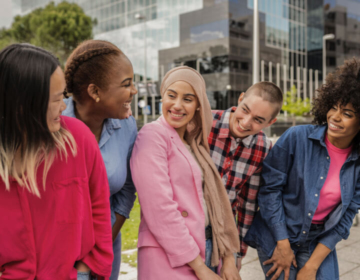Authors: Women with Disabilities Australia (WWDA), Harmony Alliance: Migrant and refugee women for change, National Ethnic Disability Alliance (NEDA)
This study deeply explores the challenges faced by Culturally and Linguistically Diverse (CaLD) women and girls with disabilities (WGwD) in accessing vital support systems. Investigating gender, disability, race, ethnicity, culture, language, visa, and citizenship status intersections, we shed light on barriers within Australia's health and disability sectors. Amidst the COVID-19 pandemic, our findings shed light on its impact, providing crucial insights and recommendations to foster equity and inclusivity.
Download Full Report
Download Summary

